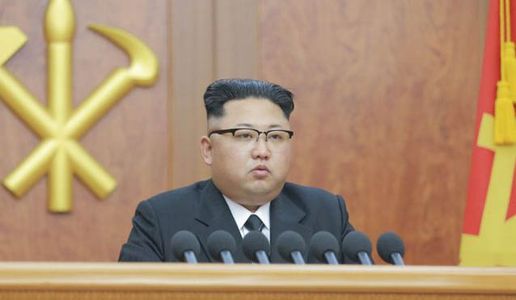Berger in Tehran Times on N. Korea Sanctions
Thomas Berger, Professor of International Relations at the Frederick S. Pardee School of Global Studies at Boston University, was recently interviewed for an article on whether economic sanctions alone will be enough to prompt North Korea to abandon its nuclear weapons program.
Berger was interviewed for an October 8, 2017 article in The Tehran Times entitled “Sanctions Alone Won’t Get North Korea to Give up Nuclear Arms: Boston Professor.”
From the text of the article:
Q: Tensions started rising between the U.S. and North Korea after Donald Trump came to power. What were the reasons for such an escalation?
A: Tensions were already rising before Trump came to power. Indeed, after Trump’s Victory, Trump and out-going President Obama had a long conversation in which North Korea was the main topic of conversation. U.S. intelligence knew that North Korea was coming to a critical juncture and its nuclear weapons development program. The election of Trump as President did not cause or even trigger the crisis. If Hillary Clinton had won, I rather suspect that we would be in the middle of the same crisis, even though she probably would be handling it differently.
Q: In his UN speech, Donald Trump warned to “totally destroy North Korea” if it threatens U.S. or its allies. What message does this threatening language send to the world?
A: In and of itself, there is nothing new about Trump’s statement. Already back in the early 1990s, then President George Bush Sr. had warned that if North Korea attacked South Korea using atomic weapons, the United States would turn North Korea into “paring lot” and the U.S. policy of providing extended deterrence to its allies has long been based on this threat. What is different about Trump’s speech, and his approach in general, has been his willingness to taunt the leader of North Korea, Kim Jong Un, and to match the generally overheated rhetoric of the North measure for measure. This has the unfortunate effect of both goading Kim Jong Un into undertaking potentially more reckless behavior, as well as raising fear of confrontation among U.S. allies – South Korea and Japan – who would have to bear the brunt of any conflict that did break out.
Thomas Berger joined the Department of International Relations in 2001. Previously, he taught for seven years at the Johns Hopkins Department of Political Science in Baltimore. He is the author of War, Guilt and World Politics After World War II, Cultures of Antimilitarism: National Security in Germany and Japan and is co-editor of Japan in International Politics: Beyond the Reactive State.
